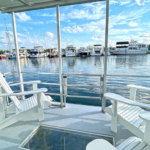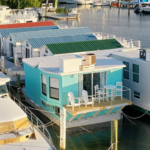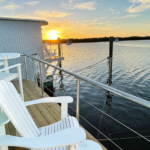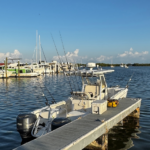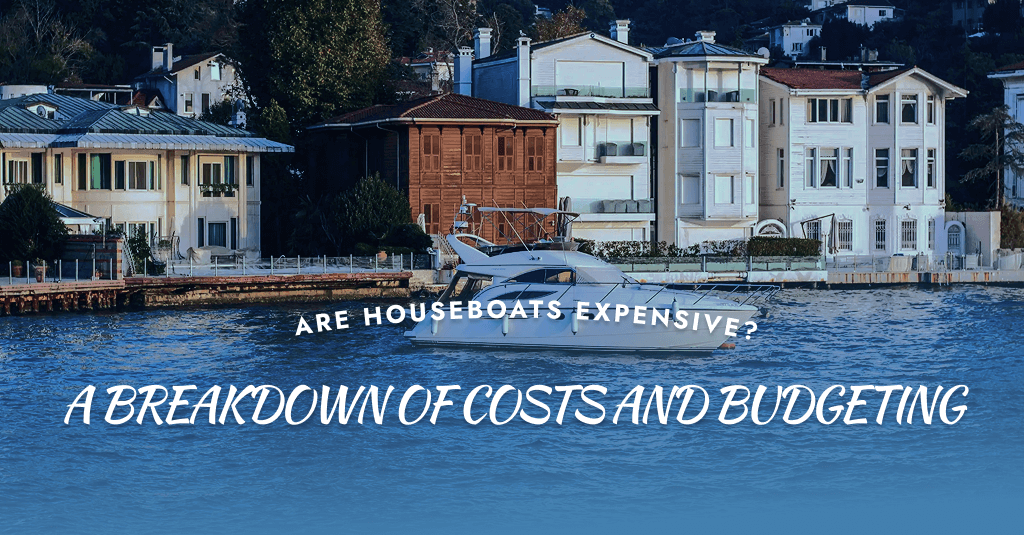
Are Houseboats Expensive? A Breakdown of Costs and Budgeting Tips
If you’ve ever dreamed of living on the water, a houseboat may seem like the perfect escape. With a blend of freedom, scenic views, and the charm of aquatic living, houseboats are increasingly popular. But before setting sail, one crucial question arises: Are houseboats expensive?
The answer isn’t as straightforward as yes or no—it depends on many variables, such as the type of houseboat, location, marina fees, maintenance needs, and whether you plan to live aboard full-time or just use it as a vacation getaway. In this detailed guide, we’ll explore the full range of houseboat costs, and offer practical budgeting tips to make your floating home dream achievable.
Initial Purchase Price: Buying a Houseboat
The upfront cost of a houseboat is often the most significant investment. Like traditional homes, prices vary based on size, age, condition, location, and included features.
-
New Houseboats: Expect to pay anywhere between $150,000 and $500,000 or more for a modern, well-equipped boat.
-
Used Houseboats: Pre-owned options can be far more affordable, starting around $30,000 and going up to $200,000 depending on condition.
-
Luxury Houseboats: High-end models with full amenities (jacuzzis, multiple decks, gourmet kitchens) can exceed $1 million.
It’s essential to consider whether you’re purchasing a stationary houseboat (one that stays docked) or a cruising houseboat with engine power. The latter typically adds to both the purchase and operational costs.
Mooring and Marina Fees
Unless you plan to anchor offshore (which has its own limitations), your houseboat will need a place to stay—and that’s where mooring or marina fees come in.
-
Marina Fees: Most marinas charge based on the length of your vessel. On average, you can expect to pay between $300 to $1,000+ per month.
-
Liveaboard Fees: Some marinas add a premium for living aboard full-time, which can increase your monthly expenses by $100 to $400.
-
Utilities: Electricity, water, Wi-Fi, and pump-out services are sometimes included in marina fees, but often charged separately.
When budgeting for houseboat living expenses, marina location plays a big role. Urban marinas in prime areas will naturally cost more than those in rural or less-developed regions.
Insurance Costs for Houseboats
Another key component of houseboat costs is insurance. This is highly recommended, if not required by marinas or lenders.
-
Annual Premiums: Insurance typically ranges from $500 to $3,000 per year, depending on the boat’s value, location, and coverage type.
-
Coverage Types: You’ll want to include liability, damage, theft, and possibly personal property protection if you’re living aboard.
Specialty insurers for marine and recreational watercraft usually offer the best coverage options tailored for houseboats.
Maintenance and Repairs
Just like any home or vehicle, houseboats require regular maintenance to stay safe and operational.
-
Routine Maintenance: Includes engine checks (if applicable), hull cleaning, roof resealing, plumbing upkeep, and electrical inspections.
-
Annual Maintenance Budget: Budget around $1,000 to $5,000+ per year, depending on the boat’s age and usage.
-
Major Repairs: Hull repairs, engine replacements, or major electrical work can cost tens of thousands of dollars, so a maintenance reserve fund is wise.
Don’t forget bottom painting, which helps prevent algae and barnacle buildup it’s needed every 2–3 years and can cost $2,000 to $5,000.
Houseboat Utilities and Living Expenses
If you plan to live aboard full-time, it’s important to account for monthly houseboat living costs, similar to what you’d expect in a land-based home.
-
Electricity & Water: May be metered separately at your marina or bundled into dock fees.
-
Internet & TV: Not all marinas offer this; you may need mobile hotspots or satellite services.
-
Waste Management: Blackwater (toilet) tanks need regular pump-outs, which can run $20–$50 per service.
Some houseboats are fully off-grid, using solar panels, composting toilets, and freshwater tanks. While more eco-friendly, the initial installation of such systems adds to your setup costs.
Registration, Taxes, and Licenses
Depending on your jurisdiction, your houseboat may be subject to property taxes, boat registration, or even residential zoning laws.
-
Registration Fees: Typically cost $50 to $300 annually, depending on your state or country.
-
Property Taxes: Some regions treat stationary houseboats as real property, which means annual property taxes may apply.
-
Licensing: You may need a boating license, especially if your houseboat has an engine or is used for travel.
These costs vary widely, so check with your local DMV or marine authority.
Hidden Costs and Unexpected Expenses
When estimating houseboat costs, don’t forget to budget for the less-obvious items:
-
Winterizing (if in a cold climate)
-
Slip deposits at marinas
-
Furniture and décor suited to marine environments
-
Haul-out fees for inspections or repairs
-
Towing services if the boat breaks down
Unexpected expenses can and do happen, so setting aside 10–15% of your total budget for contingencies is highly recommended.
Budgeting Tips for Houseboat Ownership
1. Buy Used, But Smart
Used houseboats can save you thousands but only if they’re in good condition. Always invest in a professional marine survey before buying.
2. Choose Location Wisely
Marina fees and taxes vary greatly by location. Smaller towns or less trendy waterfronts can offer significant savings.
3. DIY Maintenance When Possible
Learning to do basic maintenance like cleaning the hull, resealing windows, or fixing plumbing can drastically cut costs over time.
4. Look for All-Inclusive Marinas
Some marinas bundle Wi-Fi, pump-outs, and electricity into the slip fee. This can simplify your bills and save money.
5. Use Solar Power and Off-Grid Tech
Installing solar panels or composting toilets can reduce long-term utility costs especially if you’re in a sunny climate.
6. Live Part-Time
If full-time houseboat life seems too costly, consider using it seasonally or as a vacation rental property when not in use. This can offset expenses.
Is Living on a Houseboat Worth the Cost?
If you’re looking for a unique, peaceful lifestyle and love being on the water, the costs can be worth it. However, houseboats require commitment, regular upkeep, and smart budgeting. They aren’t always cheaper than a traditional home, but for many, the experience of houseboat living is priceless.
When compared to real estate prices in many urban areas, especially on the coast, a houseboat can offer a more affordable entry into waterfront living—if you manage expenses wisely.
So, are houseboats expensive? They can be—but with smart decisions, the costs become manageable. From purchase and mooring to utilities and insurance, owning a houseboat involves various expenses. However, the unique lifestyle and sense of adventure often outweigh the financial commitment for those who truly embrace it.
By understanding the full scope of houseboat costs and applying thoughtful budgeting techniques, you can navigate your way to life on the water—without sinking your savings.
Frequently Asked Questions (FAQs)
Is it cheaper to live on a houseboat than in a traditional home?
It depends on your location and lifestyle. In some waterfront cities, houseboat living can be more affordable than renting or owning land-based property. However, ongoing costs like marina fees and maintenance can add up.
What hidden expenses come with owning a houseboat?
Unexpected houseboat costs may include haul-out fees, winterizing, emergency repairs, and liveaboard surcharges at marinas. It’s wise to budget 10–15% extra for such expenses.
What’s the biggest factor that makes houseboats expensive?
The biggest contributor to houseboat costs is location—marina fees in urban or high-demand coastal areas can be very steep. Add in maintenance and utilities, and the total can rival traditional housing, especially for liveaboards.
Are utilities more expensive on a houseboat?
Not necessarily. While some houseboat utilities (like pump-out or Wi-Fi) may cost more or be charged separately at marinas, energy-efficient upgrades like solar panels can reduce long-term utility expenses.
Are houseboats a good investment despite the costs?
While not always a traditional “investment,” many find the houseboat lifestyle worth the costs for the unique experience. Some even rent their boats seasonally to offset houseboat expenses.

